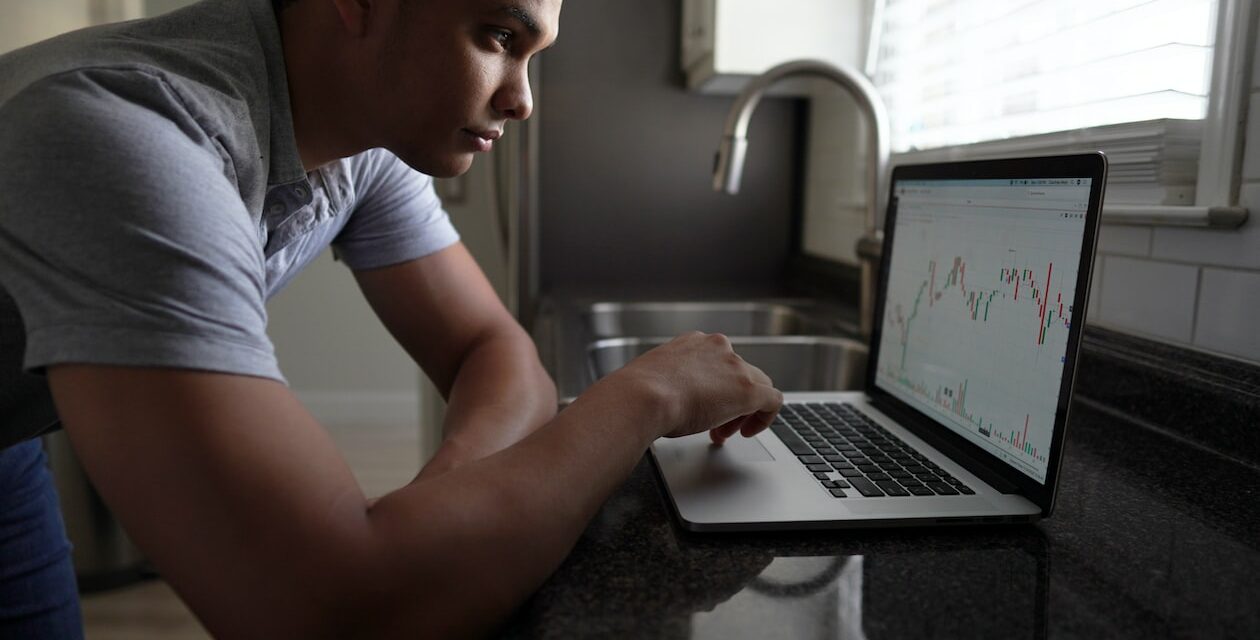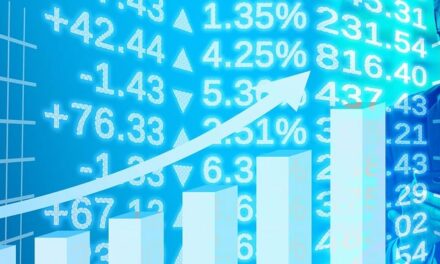
Online Trading 101: Your Ultimate Guide to Making Money from Home

The Ultimate Guide to Making Money from Home

If you have ever wondered how people make money from home, online trading might have crossed your mind. As technology progresses and the world becomes more digital, online trading has become an increasingly popular way of making money from the comfort of one’s home. In this guide, we will explore what online trading is, how it works, and how you can get started.
Check out our review of Forex vs Binary Options Trading and know what is best for you.
What is Online Trading?
Online trading, also known as electronic trading, is the buying and selling of financial products through an online platform. It allows traders to access global financial markets, including stocks, bonds, currencies, cryptocurrencies, and commodities from their computer or mobile device. Online trading has replaced traditional trading methods, such as making phone calls to brokers or visiting physical markets, with a more convenient and accessible alternative.
How Does It Work?
To get started, you need to create an account with a broker or a trading platform. A broker is an intermediary that enables traders to buy and sell financial products in exchange for a commission or a spread. A trading platform is a software that connects traders to the financial markets and provides them with tools and resources to facilitate their trading. Some of the most popular brokers and trading platforms include E*TRADE, TD Ameritrade, Interactive Brokers, Robinhood, and Coinbase.
Once you have created an account, you can deposit funds into it and start trading. Depending on the type of financial product you want to trade, you will need to have different strategies and risk management techniques. For example, if you want to trade stocks, you will need to know how to read financial statements, analyze market trends, and mitigate risks. On the other hand, if you want to trade cryptocurrencies, you will need to be familiar with blockchain technology, security risks, and market volatility.
Most trading platforms offer educational resources and tools to help traders improve their trading skills and knowledge. These resources include videos, webinars, e-books, and trading simulators. It is highly recommended that you take advantage of these resources to develop your understanding of online trading before risking your funds.
Advantages of Online Trading
Online trading has several advantages that make it an attractive option for investors and traders.
Accessibility: It allows anyone with an internet connection to access global financial markets from anywhere in the world.
Convenience: It can be done from the comfort of one’s home or office, eliminating the need to physically visit markets or brokers.
Low Costs: Trading fees are usually lower than traditional trading fees, which can range from hundreds to thousands of dollars.
Flexibility: Online trading platforms are available 24/7, allowing traders to take advantage of market opportunities at any time.
Transparency: These platforms provide real-time market data and trading history, giving traders a clear view of their investments and performance.
Disadvantages of Online Trading
Online trading also has some disadvantages that traders should be aware of.
Technology Issues: Trading platforms rely on technology that can be vulnerable to glitches, crashes, and cyber-attacks, which can cause financial losses.
Lack of Human Interaction: Online trading can be a solitary activity, without the guidance and feedback of human brokers or advisors.
Risks: It involves financial risks, including market volatility, security risks, and fraud, which can lead to significant losses.
Overconfidence: It can give traders a false sense of control and confidence, leading to impulsive or irrational decisions.
How to Get Started with Online Trading
To get started in trading online, follow these steps:
Step 1: Choose a Broker or a Trading Platform
Research and compare different brokers and trading platforms to find the best fit for your trading needs, preferences, and budget. Consider factors such as fees, minimum deposits, available products, customer service, educational resources, and regulatory compliance. Most brokers and trading platforms offer free demo accounts, which allow you to test their platform and features before committing with real money.
Step 2: Create an Account
Once you have chosen a broker or a trading platform, create an account by providing your personal information, identification documents, and funding source. Verify your account and deposit funds into it. Some brokers and trading platforms offer bonuses or promotions for new customers, so be sure to check if you are eligible.
Step 3: Learn the Basics of Online Trading
Before you start trading, it is essential to learn the basics first, including market analysis, risk management, trading strategies, and technical analysis. Take advantage of educational resources and tools provided by your broker or trading platform, such as videos, webinars, e-books, and trading simulators. Attend online seminars and forums to connect with other traders and learn from their experiences.
Step 4: Start Trading
Once you have gained enough knowledge and confidence, start trading by selecting the financial products you want to trade, analyzing their performance, and placing your orders through your trading platform. Monitor your trades and adjust your strategies accordingly. Always use risk management techniques, such as stop-loss orders and diversification, to protect your investments.
FAQs
1. What types of financial products can I trade online?
You can trade a variety of financial products online, including stocks, bonds, currencies, cryptocurrencies, and commodities. Some platforms offer a more extensive range of products than others, so be sure to research the platform’s offerings before signing up.
2. How much money do I need to start?
The amount of money you need to start trading online depends on your trading goals, risk tolerance, and trading style. Most brokers and trading platforms have minimum deposit requirements, which can range from a few hundred dollars to thousands of dollars. Some brokers and platforms also offer micro-trading accounts for those who want to start with smaller deposits.
3. What are the fees associated with online trading?
Fees include commissions or spreads charged by brokers or trading platforms, as well as fees for other services, such as deposits, withdrawals, and account maintenance. Fees can vary widely, so be sure to compare the fees of different platforms before choosing one.
4. Is online trading safe?
While online trading can be safe, it is also associated with financial risks, including market volatility, security risks, and fraud. To minimize the risks, choose a reputable broker or trading platform, use risk management techniques, and keep your personal and financial information secure.
5. Can I make money from online trading?
Yes, it is possible to make money from online trading, but it is not a guarantee. Success in online trading requires knowledge, experience, and discipline. It is essential to develop a sound trading strategy, use risk management techniques, and remain patient and disciplined.










